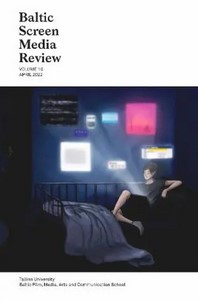Disco Elysium as Gothic fiction
Disco Elysium as Gothic fiction
Author(s): Julian NovitzSubject(s): Architecture, Visual Arts, ICT Information and Communications Technologies
Published by: Tallinna Ülikooli Balti Filmi- ja Meediakool
Keywords: Disco Elysium; Estonian video game making; Gothic fiction;
Summary/Abstract: Disco Elysium demonstrates many hallmarks of the Gothic through its storyline and representational elements, particularly its emphasis on the instability of its protagonist, the sense of decline and decay conveyed through its setting, and the interconnected secret histories that are revealed through exploration. Furthermore, many of the game’s stylistic and ludic features, such as its dense description and emotive language, and its overwhelming array of options, interactions, and responses, can be understood as engagements with the uncanny and disorienting excess of the Gothic tradition. These Gothic elements manifest most frequently through the game’s attempt to represent psychological complexity within its role playing system, its depictions of urban spaces, and its approach to questions of unresolved memory and history. The presence of these Gothic features in Disco Elysium work to contest the game’s categorization as a ‘detective role playing game.’ While the genres are closely connected, detective fiction typically follows a trajectory in which the history of the central mystery becomes progressively clearer through the accumulation of information and detail, whereas the Gothic traditionally seeks to maintain and heighten a sense of disorientation. Exploring the tension between Disco Elysium’s Gothic elements and its status as a detective game allows for a richer appreciation of the political and social commentary that emerges from both its narrative and gameplay.
Journal: Baltic Screen Media Review
- Issue Year: 2021
- Issue No: 9
- Page Range: 32-42
- Page Count: 11
- Language: English

